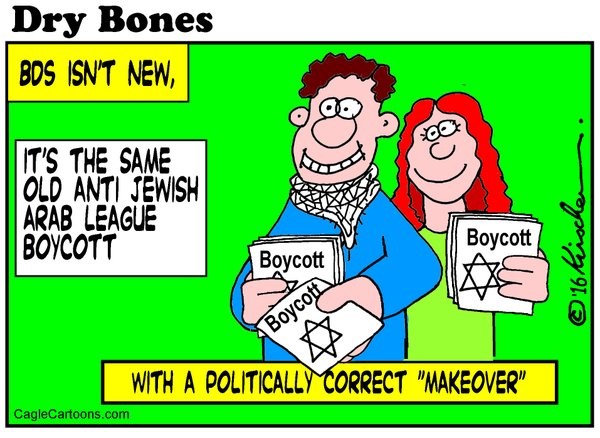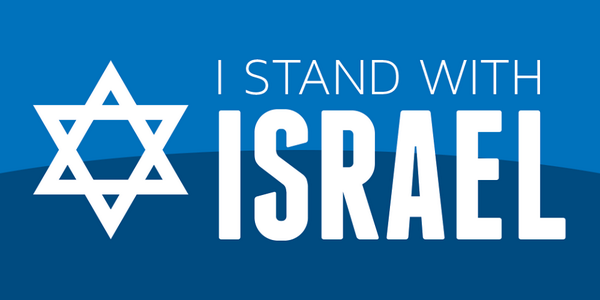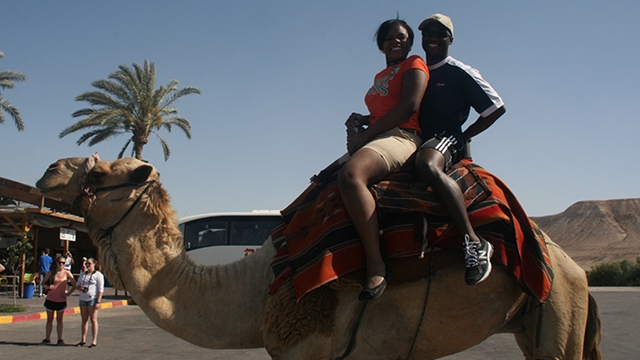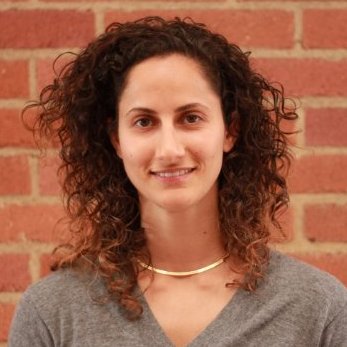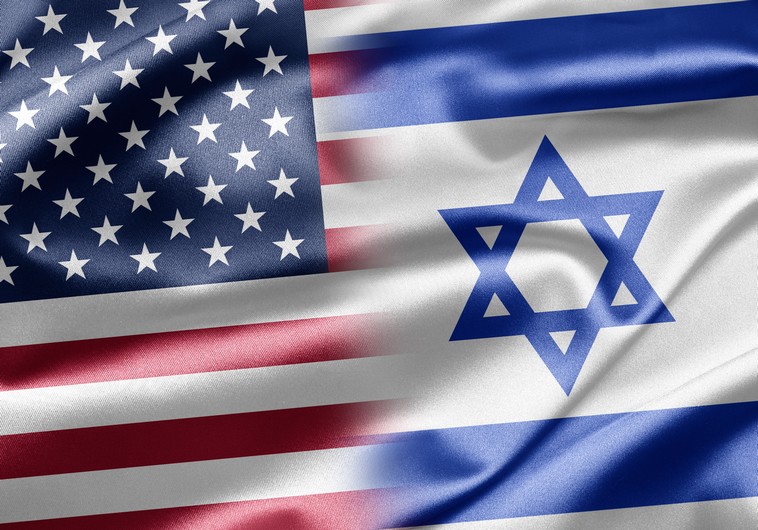The Arab League Boycott and BDS – The same old lady in a new dress
See the original post on Times of Israel
This piece was co-written by Adam Milstein and Marc A. Greendorfer. A version of it previously appeared in the Huffington Post.
The Israeli people and the global pro-Israel community are waking up to the seriousness of the Boycott, Divestment, and Sanctions (BDS) Movement, which has gained increasing traction at universities, academic associations, municipalities, churches, unions, pension funds, and investment portfolios in America and around the globe. Many are realizing that this Movement poses a serious threat to the Jewish state, the Jewish people, the American people and Western Civilization.
Yet, as we mobilize our effective response, it’s important to recognize that BDS is nothing new. Arab boycotts of Jewish interests in the British Mandate of Palestine started as early as 1922, more than twenty years before the establishment of a Jewish state in 1948. Restrictions were added in 1933, 1934 and 1936. An official, organized boycott of the Jewish community in Palestine, adopted by the Arab League in December 1945, persisted against Israel after it was founded, with the goal of isolating the Jewish state from the international community. Through the years, this boycott spread like a virus across the globe, resulting in institutionalized discrimination against Israeli goods and businesses. It is clear that those behind the BDS Movement have simply put old wine in a new bottle.
Furthermore, Arab anti-Israel and anti-American boycotts have been a part of life in the U.S. since the early 1970s – and past experience in fighting these anti-Semitic movements can, and should, guide our response in the present.
The effects of the Arab League Boycott in America were disruptive and outrageous, causing energy shortages, gas lines, rationing, economic stagflation and discrimination against Jewish Americans. The 1973 oil boycott alone cost the American economy billions of dollars, and turned American businesses and consumers into unwilling participants in an anti-Semitic campaign against Israel and the Jewish people.
In 1977, U.S. Congress voted overwhelmingly to approve legislation to protect American interests, making it a criminal offense to comply with the Arab League Boycott and imposing fines on American companies that did so. The U.S. Department of Commerce opened an office to oversee and implement the law, and many states followed the federal legislation with their own anti-boycott laws, which did help reduce the effects of the Arab League Boycott in the United States.
However, those behind the Arab League Boycott continued to search for opportunities to circumvent the law. In 2001, at the U.N.’s “Conference on Racism” held in Durban, South Africa, they found one, hijacking the conference’s agenda to force through a series of racist declarations attacking Israel. As the conference drew to a close, the Arab League met to formally call for a resumption of its boycott, which became the framework for what we know as the BDS Movement.
In truth, the latest boycott is even more dangerous than the original, as those behind BDS have learned from previous failures. BDS has effectively branded itself as a human rights movement, hiding its true intentions from the public – the destruction of Israel, the demonization of the Jewish people and the erosion of the values essential to our Western Civilization – and obscuring the role of the extremists, terrorists, and radicals behind the Movement.
The BDS Movement has effectively moved around the general language of existing American anti-boycott laws, claiming that these laws only apply to activities directly connected to the “Arab League Boycott” name. The pro-Israel community must reject this false dichotomy and vigilantly watch to make sure that federal, state, and local agencies are enforcing existing anti-boycott laws.
We must also enact new laws that specifically close any purported loopholes that BDS’ supporters exploit. This was recently accomplished at the U.S. federal level, when Representative Peter Roskam’s anti-BDS language was included in the Trade Promotion Authority passed by Congress and signed into law by President Obama. The American Congress may also consider anti-discrimination measures to combat the BDS Movement, as it promotes hatred and discrimination against Jewish Americans and other pro-Israel supporters, especially on college campuses.
BDS threatens a return to the same kind of economic and social turmoil that the Arab League Boycott created within the United States in the 1970s. We, as Americans, have to stop BDS in its tracks before the Movement gains any more traction. The future of Israel, America, Europe – and indeed, all of Western Civilization – is at stake.
Adam Milstein is an Israeli-American philanthropist, National Chairman of the Israeli-American Council, real estate entrepreneur, and President of the Adam and Gila Milstein Family Foundation. Follow Adam on Twitter @AdamMilstein and @AdamMilsteinIAC.
Follow Adam Milstein on Twitter: www.twitter.com/AdamMilstein

